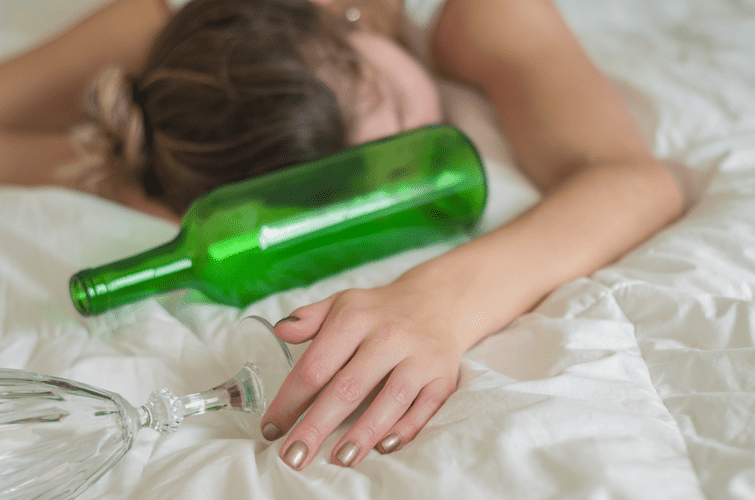 Avenida Madre Leônia Milito, 1377 - Londrina/PR
Avenida Madre Leônia Milito, 1377 - Londrina/PR  43 3354-1377
43 3354-1377  43 98823-1232
43 98823-1232  contato@clinicapensare.com.br
contato@clinicapensare.com.br
How To Taper Off Alcohol The Recovery Village Cherry Hill at Cooper
Content
A 750 ml bottle of 80 proof booze contains 17 https://ecosoberhouse.com/ drinks. Alcohol detox isn’t easy and not everyone can do it on their own. That is why alcohol detox and alcohol withdrawal treatment is administered by medical professionals. Alcohol withdrawal occurs when neurotransmitters that combat the effects of alcohol on the nervous system suddenly have nothing to counteract them. Essentially, when an individual drinks, the brain amplifies certain activities to counterbalance the depressive effect alcohol has on it. When that numbing sensation disappears entirely, the brain is left dangerously overstimulated. Insomnia, anxiety and paranoia — the opposite effects of alcohol — are the expected results.

Take our short alcohol quiz to learn where you fall on the drinking spectrum and if you might benefit from quitting or cutting back on alcohol. It’s also important to point out that if you struggle with episodic binge drinking , this may not apply to your situation. Quitting binge drinking may require different strategies than either tapering or cold turkey. Getting curious about a life without alcohol is already an incredible step, and a healthier lifestyle is within reach. The typical warning signs that someone is going to experience Delirium tremens include tremors, an extremely elevated heart rate, and a drastic increase in body temperature. This is because Delirium tremens is caused by hyperactivity in the nervous system, which is now without the depressant effects of alcohol and is instead going into overdrive.
Can You ‘Wean Off’ Alcohol?
In most cases, the longer you take to wean off the effects of alcohol, the less severe your withdrawal symptoms should be. However, it can be challenging to stick with a long-term tapering schedule, so you have to find the right balance for you. Medically assisted detoxification is an inpatient program that keeps you stabilized during alcohol withdrawals. Staffed by medical professionals, these programs offer 24-hour monitoring so you always have support if any complications arise.
This is a staggering number considering that many other drugs do not even have the possibility of lethal withdrawals. For this reason, experts advise that alcohol cessation be monitored safely with steady effort between oneself and a physician. Anyone wanting to stop using alcohol may benefit from tapering if they first consult with their doctor to ensure they are tapering safely. Tapering is a more cost-effective method of stopping alcohol use, especially for those who do not have healthcare insurance or the resources needed to get a professional detox.
Weaning (or Tapering) Off Alcohol: What it Means
Providers may prescribe taper off alcohol such as benzodiazepines to reduce the effects of alcohol withdrawal. People with mild to moderate withdrawal symptoms may benefit from outpatient rehabilitation and safe tapering.
Our hope is to create the safest, most comfortable environment for you to begin your treatment journey. People who consume more than a moderate amount of alcohol every day are more likely to develop withdrawal symptoms compared to those who do not drink consecutively. Individuals with AUD will also experience withdrawal symptoms when they are not drinking, leading them to drink to alleviate the pain. This would be an opportune moment to speak about finding help in a medical treatment center. Quitting alcoholcan be extremely hard, especially without medical support.
Can You Taper off of Alcohol?
Others may discover after consulting with a doctor that it’s safe for them to quit alcohol cold turkey if they choose to. However, they may still decide that tapering down feels most achievable for them. If you’re not sure if cold turkey or tapering is right for you, you can join the Monument Community to hear from others who have confronted similar questions. If you attempt to taper off using wine or hard liquor you might just wind up getting drunk again because these have higher alcohol content than beer.
- When the alcohol is suddenly no longer there, these GABA receptors now respond only very weakly to the presence of GABA.
- Give your loved ones as much information as you can about your self-tapering strategy.
- Alcohol withdrawal symptoms can start as soon as just a few hours after you have had your last drink.
- Studies have shown that between 13 and 71%9of people going throughalcohol detoxdevelop withdrawal symptoms.
- You may be wondering how to begin the process of ridding yourself or your loved one of alcohol use once and for all.
